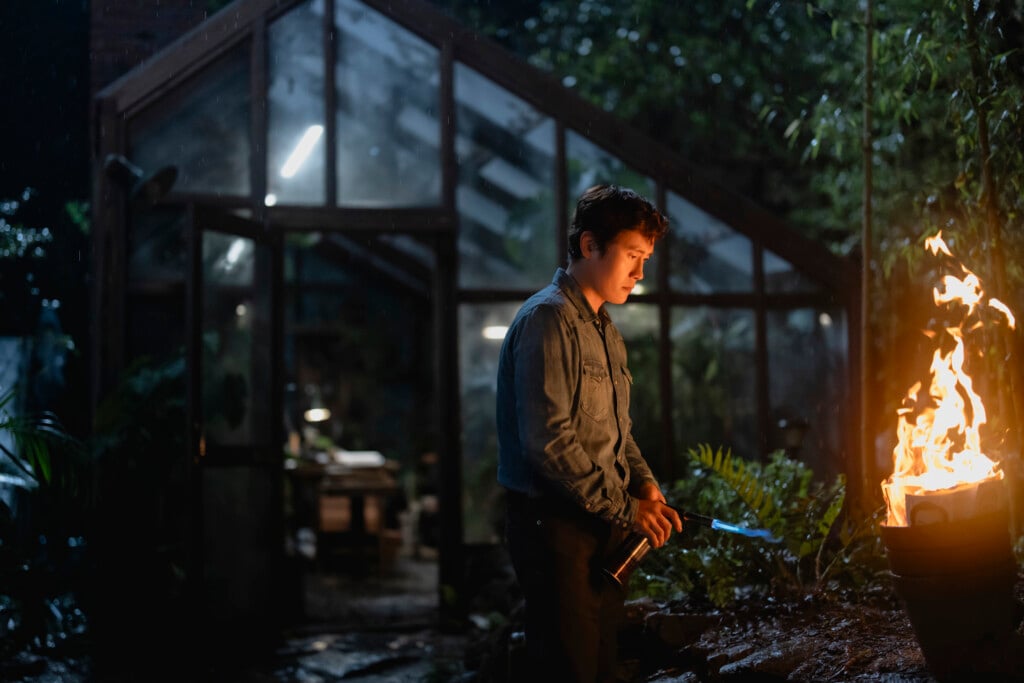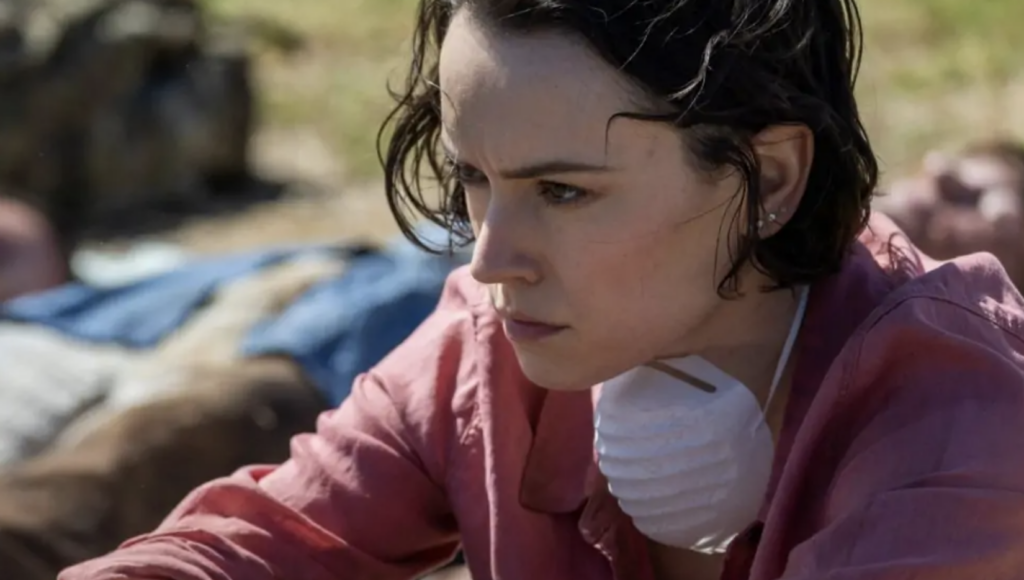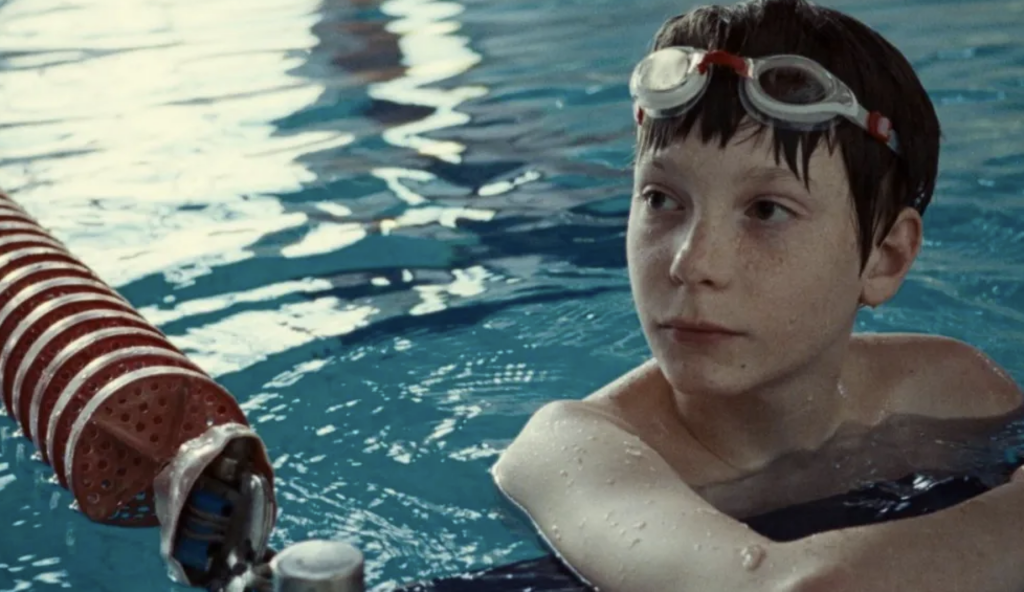Director John Alexander’s Little Satchmo illuminates an unknown side of one of America’s greatest entertainers
Director John Alexander’s debut documentary, This Is Love, told the story of the nearly-forgotten and sadly unheralded soul singer, Rudy Love.
His latest, Little Satchmo, does the same by bringing the story of Sharon Preston-Folta, the secret daughter of Louis Armstrong, to light. The Emmy-winning documentary is a fascinating, if saddening, tale which illuminates a heretofore unknown side of one of America’s greatest entertainers.
Ahead of its screening at the Lawrence Arts Center on Friday, August 18, we spoke with director Alexander via email about bringing Preston-Folta’s story to the screen.
 The Pitch: When did this story first come to you?
The Pitch: When did this story first come to you?
John Alexander: Little Satchmo first came to us all the way back in a pre-pandemic 2018, after making our debut feature documentary This Is Love, about the late little-known but deeply influential soul singer Rudy Love, which now streams on Amazon Prime.
This Is Love had become quite popular on the international film festival circuit, actually breaking film festival attendance and ticket sales records and picking up top prizes in over a dozen countries, when a Florida-based film programmer and producer, the late Lea Umberger had heard the buzz around it and invited us to St. Pete FL for a film series screening and Q&A with local audiences.
We had gotten so used to doing This Is Love Q&As around the world, our answers often ran the risk of sounding old hat, or often worse, even telepathically knowing the audience’s questions before they were asked.
But, this Florida Q&A was different because it was there where Umberger pulled us aside and said she knew what our next project was going to be, and that it was all about Louis Armstrong’s secret daughter, who lived right there in nearby Sarasota. Story ideas come from abundance and pitches of supposed next projects arrive on a near daily basis, but on this one we were intrigued, to say the least, because we were so impressed with both Umberger’s having deftly orchestrated a wonderful event, and the double-take worthy thumbnail of a story that seemed almost too good for television to be true.
After planting the seed and sending me a copy of the memoir, Little Satchmo, Umberger connected my partner JC Guest and myself directly with Sharon in the summer of 2019. When I first heard Sharon over the phone, I was instantly struck by her melodious speaking voice, an instrument with the ability to paint pictures not only with her words but with the utter music resonating from her vocal cords with each spoken word – much like her father.
I thought: what better way to bring this story to the screen than to have Sharon first-person narrate it with her own words, in her own voice. I asked Sharon if she would be willing to narrate the film, and she replied by saying she had always dreamed of being a voice-over artist! At that moment, I knew we were going to be able to make the film.
Were there challenges you faced during the filmmaking process, given the nature of this story and Louis Armstrong’s stature as a cultural icon?
From the very beginning of Little Satchmo, I was very protective and defensive of the fact that Armstrong is a beloved cultural icon, and this film must do nothing toward smearing him or tearing his legacy down. There is innate risk and danger in taking on a story that digs deeper into someone who the whole world practically already claims intimately, almost as a father figure, feeling that they know him well if not through meeting him but through his trumpet playing, quintessential gravelly voice, and canonical tunes like ‘What a Wonderful World;’ it was a very legitimate concern that the multitudes of Satchmo fans might feel threatened, compromised, or even hurt, by Sharon’s story.
I have always held the position, however, that this account from his secret daughter actually deepens our understanding and love for the ever-avuncular Satchmo, since it manages to show him in a truly complex and three-dimensional human light, one which he is rarely framed in. As a historic musical and cultural pioneer, having ascended to superhuman status internationally, he is most often referred to as exactly that: an icon, rather than a human being. The fact is there is much the public has never known about Armstrong’s private life, his family, and his strengths and weaknesses as a man and father. Nobody is perfect, and to assume Armstrong is any different, would be to deny him of his tender and ambiguous humanity which Little Satchmo just barely cracks open. Much of the histories written by or about him border on lore, propelling the very viable brand image that has long been distilled into his immortal caricature.
As more and more audiences around the world see this film—millions of people at this point—we continue to witness how, perhaps ironically, it is this very act of exposing these vulnerabilities of Satchmo, showing in raw fashion his ‘imperfections,’ which actually draws him nearer to our hearts, not further.
Satchmo loved his little girl Sharon, and fathered her to what he felt was the best he could. That in of itself is a heartfelt story that extends deep compassion to all–daughter and father.
Why do documentaries appeal to you?
To be honest, I actually never thought I would make a single documentary! When people call me a documentarian in articles and interviews, my knee-jerk reaction is always: ‘Who, me?’. My favorite filmmaker is and always will be Alfred Hitchcock. Hitchcock was notoriously uninterested in ‘stories’ or ‘what’ a film is about; he, like me, took much more interest in ‘how’ a story is told, regardless of whatever it was about. It really could be about anything, but the goal is to construct an experience for audiences that puts them through a series of emotions. Hitchcock even speculated that eventually there would be no need for films at all as we would just be plugged into some giant machine that makes us feel certain things in a certain order. This may well already be happening now, but I digress.
It is not so much that I love documentaries, but more that audiences love documentaries. I think in our age of post-reality television and social media, there is an unspoken mass credulity where the world wants to know that what they are seeing is really real. It doesn’t mean there is no place for fiction (at least I hope not!) but on the surface a so-called made-up story is harder to get the world to care about to go see these days, it sometimes seems. There has to be some controversial or edgy angle or simply something grounded in the familiar, the real.
At this moment in history, it seems nearly everyone watches documentaries, whether they admit they do or not – whether they even realize they do or not. In conversations with actors and writers, I have learned that many actors and creators of fiction even prefer watching documentaries as they want to see real people on the screen! That is, after all, what actors are trying to portray. I think documentaries have furtively infiltrated entertainment more than most filmmakers or audiences are even aware. A very intelligent writer once told me that ‘all stories are true stories’ and I think documentaries are a short circuit to return our bearings to this original dramatic source.
My directorial debut was with creepy psychological thriller and now pseudo cult classic Bender, which is based on the true story of the Bloody Benders, America’s first serial killing family, but still very much a narrative fiction feature film. The production of that stylized period piece with actors, animals, sets, children, vehicles, extras, extreme weather, etc was so intense it took a lot out of me and I suppose needed a bit of a break. The pessimist in me might claim that in recent years I have become somewhat pigeonholed into documentaries after the success of my subsequent film and first documentary, This Is Love, but it has brought a parade of thoughtful and heartwarming documentary projects to my door that I never would have had the chance to get into otherwise.
These include: a wonderful documentary on women’s tackle football Open Field, and an upcoming character study colliding music and science in The Sunshine Dreamer.
Documentaries certainly have their own challenges, so I think I’m ready now to finally return to my narrative fiction and Hitchcock roots, which I’ll be doing in some upcoming feature films. Maybe I’ll just continue to keep flip-flopping and keeping people on their toes.
What do local screenings mean for you as a filmmaker?
It is a very satisfying feeling to witness real live people reacting to a film we’ve made, in any corner of the globe. In different languages and cultures, it is always a thrill to see what people are moved by. I think with Little Satchmo, I personally have been to about a half a dozen countries with the film and done Q&A’s with translators, and it is a very gratifying experience as compared with simply having a film online or on television and having no idea how it is actually being received on the other end. This upcoming August 18 screening at the Lawrence Arts Center is especially meaningful for me, since while I am not based in Kansas, I really claim the state as a home away from home, having worked on a handful of projects there at this point, with some of my closest collaborators and producers who have become more like family. My producer Shawn Rhodes is based in Wichita and we have done four films together at this point.
So, any Kansas screening truly feels like a homecoming event for me.
How did you all feel when the film won an Emmy?
We were all overjoyed. When I learned of the nomination, we were working in a Mediterranean town in Spain and promptly dropped everything on our desk and celebrated with local Cava on the beach. The nomination had long been a dream, or a defined goal, for the production, as soon as it was picked up by PBS. Is it crass to say that when the nomination came in I was not so much thrilled as relieved?
The win, however, was not something I was necessarily prepared for, as might have been evidenced by my under-rehearsed and borderline bumbling acceptance speech. We had all grown very comfortable with the idea that ‘Emmy-nominated’ would be emblazoned in front of our names for the remainder of our careers, and that was about as good as it could get. The pabulum line is that it’s an honor to be nominated, and it really is, especially among the high caliber lineup of nominees, but the win has now opened floodgates of projects coming toward me that are nearly a full-time job just to field and manage.
Perhaps I shouldn’t have been so surprised, though, as Little Satchmo has had a special spark about it from the beginning. Every specific goal we set with the film seems to have been knocked down in timely and complete fashion, almost in domino effect succession, including landing on international television where it continues to run and re-run, not to mention getting this ‘little’ film made and successfully distributed to begin with. I credit not only all my brilliant producers but Sharon’s bravery to tell her story.
Do you have any current projects you can share?
No spoiler alerts but I already said I’d keep you on your toes, so watch out for some very unexpected turns in my feature films coming soon. In the meantime, I’m so happy the short narrative film I edited Trust, directed by Diane Lansing, will be screening before Little Satchmo at the Lawrence Arts Center on August 18 as a double feature with Q&A. A tense and eerie WW2 tale where a young Jewish girl is questioned by a Nazi lieutenant who wiles her with chocolate and outdoor play to reveal her identity, it is a chilling story which–arguably like all stories–is based on a true one.
Little Satchmo screens at the Lawrence Arts Center on Friday, Agust 18. Details on that screening here.






